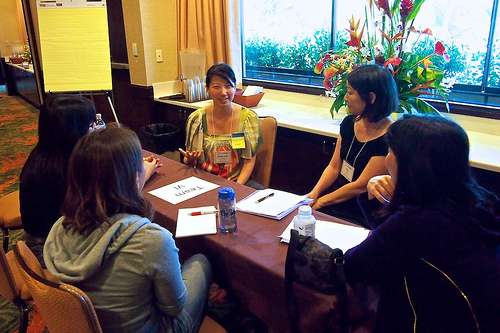<p style="text-align: justify">If you fancy a rewarding career where helping others achieve their life goals and dreams, then becoming a life coach could be for you. What used to be considered as an American fad is now recognised as being a great way of moving on in life, and ever more people are turning to life coaches to help them transform their lives. So if you think that life coaching could be for you then read on to find out more.</p>
<h2 style="text-align: justify"><strong>What Do Life Coaches Do?</strong></h2>
<p style="text-align: justify">Life coaches aren’t just agony aunts – they’re trained to help their clients make positive changes in their lives. The aim is not to dispense advice, but empower clients to recognise their unique skills, abilities and challenges, and work out how to take control of their life. There are many different types of coaching, and you could specialise in a particular area such as careers, relationships, or business. Either way, your role is to help enable clients to fulfil their potential.</p>
<h2 style="text-align: justify"><strong>Life Coach Personal Attributes</strong></h2>
<p style="text-align: justify">If you’re thinking of training as a life coach, then you don’t need any particular type of background to train, but should have the following personal qualities:</p>
<ul style="text-align: justify">
<li>The ability to listen well</li>
<li>Good questioning skills</li>
<li>Empathy with client’s situations or problems and a non-judgmental attitude</li>
<li>An inspirational/motivational attitude</li>
<li>Good soft skills</li>
<li>The ability to get on with people from a variety of backgrounds</li>
</ul>
<h2 style="text-align: justify"><strong>Life Coach Income and Employment Opportunities</strong></h2>
<p style="text-align: justify">As a life coach, you would normally work for yourself and take on private clients, earning around £40 &#8211; £60 per hour long session. Moreover, an increasing number of businesses are using coaches to identify business goals, improve morale and achieve better results. So there are plenty of opportunities as a self-employed executive coach helping employees, managers and team leaders with their goals. These types of coaching sessions are normally sold in packages, covering six weeks’ worth of life coaching.</p>
<h2 style="text-align: justify"><strong>Training and Development</strong></h2>
<p style="text-align: justify">To train as a life coach, then there are any number of life coaching courses to choose from. It’s recommended however that you always opt for a course that has been accredited by a specialist coaching association such as the International Coaching Federation or The Association for Coaching.</p>
<p style="text-align: justify">CBT and NLP in Coaching</p>
<p style="text-align: justify">Coaches often employ different skills such as NLP or CBT in their coaching to achieve the best results for clients. NLP (Neuro Linguistic Programming) and CBT (Cognitive Behavioural Therapy) are methods designed to change existing patterns of negative or unconstructive thoughts and patterns of behaviour in the brain to effect real change in people’s lives. Motivational and belief challenging, CBT and NLP is proven to help clients achieve their potential. As such, these skills are very effective in helping clients to identify and reach their goals within a life coaching situation. To train, http://citycbtcoaching.com/recommend only courses accredited by The International Coaching Federation if you’re thinking of undertaking an executive life coaching or life coaching course.</p>
<p style="text-align: justify">Wendy Lin is a mother, writer, painter and entrepreneur. She enjoys travelling the many beaches of the world with her family and spending time on their family boat.</p>

Training To Be A Life Coach
